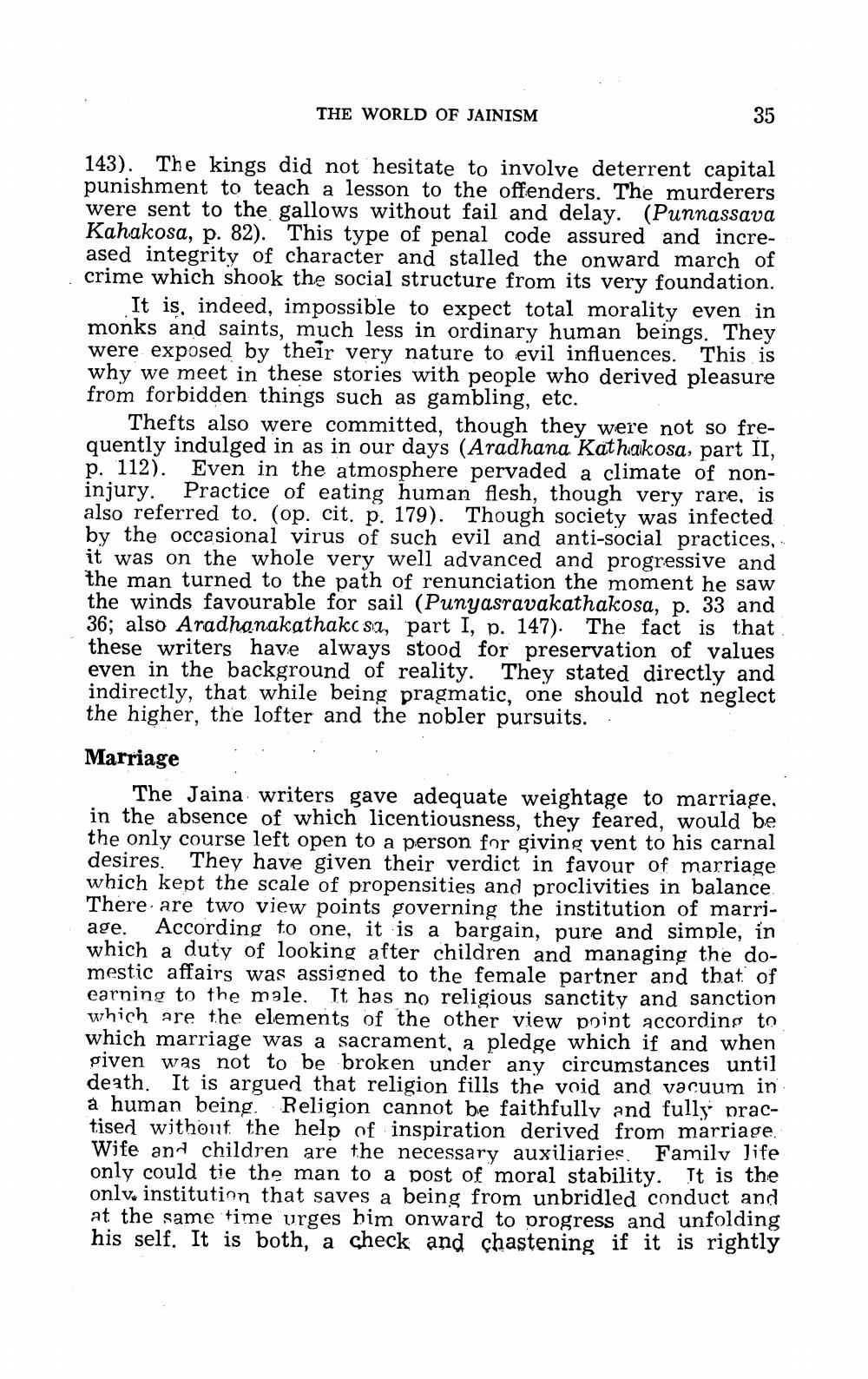________________
THE WORLD OF JAINISM
35
143). The kings did not hesitate to involve deterrent capital punishment to teach a lesson to the offenders. The murderers were sent to the gallows without fail and delay. (Punnassava Kahakosa, p. 82). This type of penal code assured and increased integrity of character and stalled the onward march of crime which shook the social structure from its very foundation.
It is, indeed, impossible to expect total morality even in monks and saints, much less in ordinary human beings. They were exposed by their very nature to evil influences. This is why we meet in these stories with people who derived pleasure from forbidden things such as gambling, etc.
Thefts also were committed, though they were not so frequently indulged in as in our days (Aradhana Kathakosa, part II, p. 112). Even in the atmosphere pervaded a climate of noninjury. Practice of eating human flesh, though very rare, is also referred to. (op. cit. p. 179). Though society was infected by the occasional virus of such evil and anti-social practices, it was on the whole very well advanced and progressive and the man turned to the path of renunciation the moment he saw the winds favourable for sail (Punyasravakathakosa, p. 33 and 36; also Aradhanakathakc sa, part I, p. 147). The fact is that these writers have always stood for preservation of values even in the background of reality. They stated directly and indirectly, that while being pragmatic, one should not neglect the higher, the lofter and the nobler pursuits..
Marriage
The Jaina writers gave adequate weightage to marriage, in the absence of which licentiousness, they feared, would be the only course left open to a person for giving vent to his carnal desires. They have given their verdict in favour of marriage which kept the scale of propensities and proclivities in balance There are two view points governing the institution of marriage. According to one, it is a bargain, pure and simple, in which a duty of looking after children and managing the domestic affairs was assigned to the female partner and that of earning to the male. It has no religious sanctity and sanction which are the elements of the other view point according to which marriage was a sacrament, a pledge which if and when given was not to be broken under any circumstances until death. It is argued that religion fills the void and vacuum in à human being Religion cannot be faithfully and fully practised without the help of inspiration derived from marriage. Wife and children are the necessary auxiliaries. Family life only could tie the man to a post of moral stability. It is the onlv, institution that saves a being from unbridled conduct and at the same time urges him onward to progress and unfolding his self. It is both, a check and chastening if it is rightly




